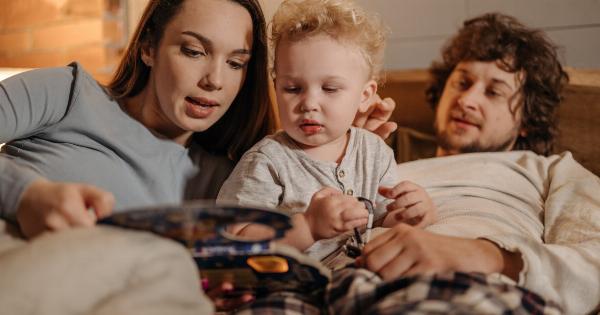Divorce is never easy, especially when children are involved. Telling your child about your divorce is one of the most challenging conversations any parent will have to have. Here are some tips to help you navigate this difficult process.
Choose the Right Time
Timing is everything, and it is essential to choose the right time to tell your child about your divorce.
It’s best to wait until you and your spouse have decided to move forward with the divorce, and you have a clear idea of what the future holds. It’s also best to choose a time when your child is relaxed and not distracted by other activities or events.
Avoid telling your child before they go to school or bed, and do it when you have plenty of time to answer any questions your child may have.
Be Honest
Honesty is always the best policy, even when it comes to discussing divorce with your child. It’s crucial to be upfront with your child about the reasons for the divorce, but remember to keep it age-appropriate.
Young children may not understand the complexities of adult relationships, so keep your explanation simple. Older children may be more familiar with the concept of divorce, but it’s still essential to be straightforward and honest with them about the situation.
Avoid Blaming Each Other
One of the most critical things to remember when discussing divorce with your child is to avoid blaming each other.
It’s essential to present a united front, assuring your child that the divorce has nothing to do with them and that both parents still love and care for them. Never say anything negative about your spouse in front of your child as this can be damaging and confusing for them.
Listen to Your Child’s Reactions
It’s natural for your child to feel upset or angry when you tell them about your divorce. Try to be supportive and listen to their reactions.
Your child may be looking for reassurance, so let them know that they are loved and that both parents will be there for them. Encourage them to express their feelings and make sure they know that it’s okay to be sad, mad, or confused. Validate their feelings and let them know that you are there for them.
Provide Reassurance
Children thrive on routine, and the prospect of divorce can be unsettling for them. It’s essential to provide reassurance that their lives will continue as normally as possible.
Tell your child about the arrangements you have made and how they will see both parents. Discuss the practicalities of who will be moving out and what school your child will attend. Keep the communication channels open and let your child know they can ask you anything at any time.
Avoid Creating a Sense of False Hope
As much as you want to protect your child from feeling hurt or upset, it’s essential to avoid creating a sense of false hope.
Some children may cling to the hope that you and your spouse will reconcile, but it’s vital to manage their expectations. Be clear that the decision to divorce is final and that while the circumstances may change, the family dynamic will be different moving forward.
Seek Professional Support
Discussing divorce with your child is a significant life event, and it’s natural to feel emotional and overwhelmed. Seek professional support if you are struggling to cope, whether it’s a therapist, counselor, or divorce coach.
Professional support can help you navigate this challenging time and provide you with the tools you need to support your child.
Take Care of Yourself
Divorce is a stressful and traumatic experience for everyone involved, and it’s essential to take care of yourself. Taking care of yourself physically, emotionally, and mentally will help you to be the best parent you can be for your child.
Take the time to do things that make you happy, prioritize self-care, and take a break when you need it. Remember that you cannot pour from an empty cup, and taking care of yourself is essential for all aspects of your life.
Conclusion
Telling your child about your divorce is never easy, but it’s essential to approach the conversation in a supportive and honest way. Choose the right time and be upfront with your child about the situation.
Avoid blaming each other and listen to your child’s reactions. Provide reassurance, but avoid creating a sense of false hope. Seek professional support if you are struggling, and take care of yourself physically, emotionally, and mentally.
Remember that while divorce is a significant life event, you and your child will get through this together.






























